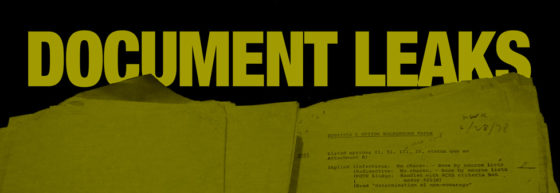A new paper by the French group of Gilles-Eric Seralini describes harmful effects on rats fed diets containing genetically modified maize (variety NK603), with and without the herbicide Roundup, as well as effects on rats fed Roundup alone. Criticism of this peer-reviewed study (Seralini et al., 2012) by some scientists was rapid and was widely reported in the popular press (Carmen, 2012; Mestel, 2012; Revkin, 2012; Worstall, 2012)*. Only a few commentators and bloggers made clear the industry ties of the critics and the unscientific nature or double standards of many of the criticisms (Vidal, 2012).
Of course unscientific criticism of unwelcome scientific findings is nothing new (Martin, 1992) and neither are the industry ties of many universities and university scientists (Food and Water Watch, 2012; Boyd and Bero, 2000). Is there anything that can be done to keep debates about science and risk-assessment focused on the science?
A group of scientists**, including Drs. Latham and Wilson from the Bioscience Resource Project, have responded to the Seralini debate with “Seralini and Science: an Open Letter“, which was published today on Independent Science News. They address 5 key factors that can stifle or skew scientific debate on important risk issues: (1) The history of attacks on risk-finding studies, (2) The role of the science media, (3) Misleading media reporting, (4) Regulator culpability, and (5) Science and politics. Only by addressing these factors, can debates around risk and risk-assessment remain grounded in science.
Scientists and academics are invited to read the letter and to add their names as signatories in the call for science-based debate on GMO risk.
*Links to these news items are found in the letter below.
**Authors of “Seralini and Science: an Open Letter” are: Susan Bardocz (Budapest, 1121 Hungary); Ann Clark (University of Guelph, retired.); Stanley Ewen (Consultant Histopathologist, Grampian University Hospital); Michael Hansen (Consumers Union); Jack Heinemann (University of Canterbury); Jonathan Latham (The Bioscience Resource Project); Arpad Pusztai (Budapest, 1121 Hungary); David Schubert (The Salk Institute); Allison Wilson (The Bioscience Resource Project)
